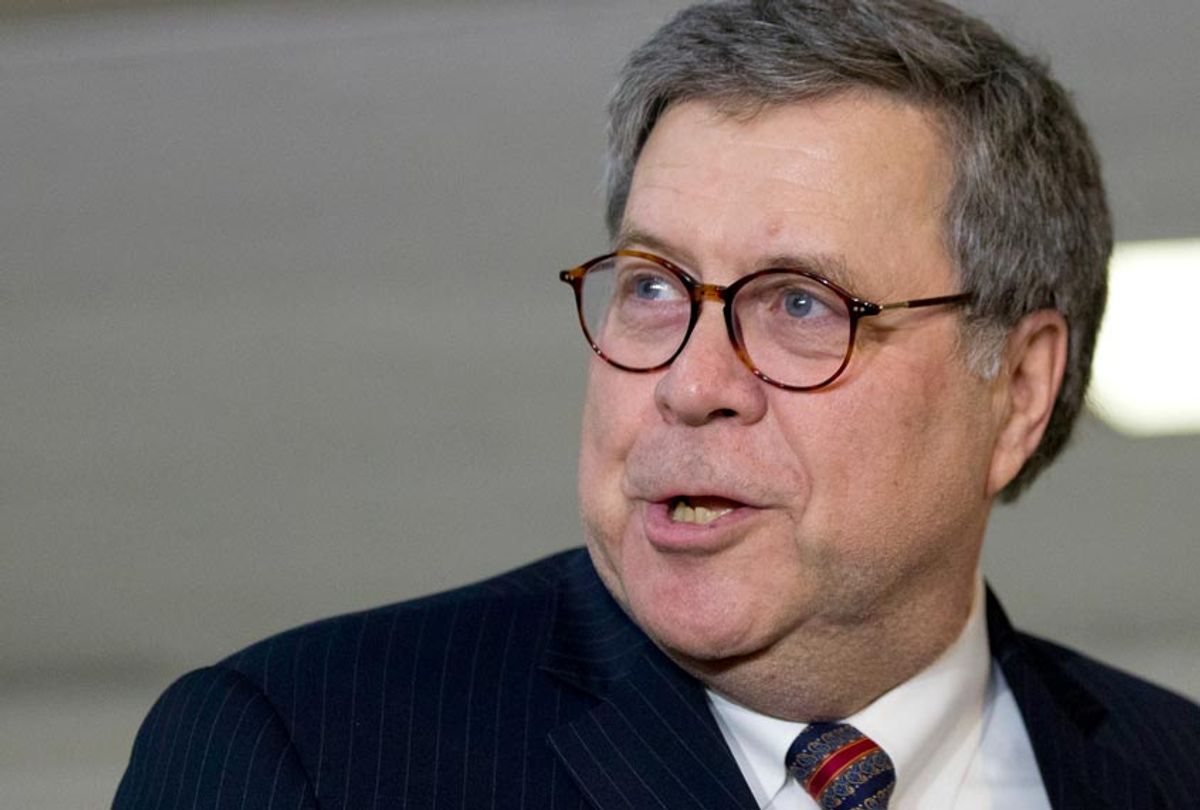Let’s be clear at the outset. William P. Barr will be confirmed as attorney general.
Not only were Democrats insistent but gentle in their questioning, Barr played the part of an experienced, sage, learned public official perfectly. Given that Senate Republicans hold a majority of votes, there is little chance Barr will not win confirmation.
Along the way, Barr showed a streak of independence that was missing in his circulated memo about possible overreach in the Special Counsel investigation and a wholesale defense for wide presidential power.
And then, at times, depending on who asked the question, he seemed to cut “independence” back to finding a basic complementary position with the White House.
If anything, there were a few phrases that strangely cut corners. He would seek ethics advice about recusing himself from participation in handling anything to do with the Special Counsel report, but not commit to it (though he said predecessor Jeff Sessions was correct, in his view, to recuse himself, and acting AG Matthew Whitaker correct in not doing so). He would seek to release as much of the Special Counsel report as possible, but what he would release, by law, would be his own summary of the report.
It felt as if he were asking to be trusted to make the right decision because he loves the idea of the Justice Department.
At times, Barr strongly backed Special Counsel Robert S. Mueller III, a personal friend; he said the special counsel report is not a “witch hunt”; he believes that a president can be investigated for obstruction or other crimes, despite a prior memo that had critiqued as a possible line of obstruction thinking (that may or not apply). He insisted that he would not be pushed around by media, Congress or the president. “I will not be bullied into doing anything I think is wrong’ if confirmed as attorney general,” he said.
Along the way, he criticized his own memo as distant from the facts and actual processes of the Mueller investigation, and he said it was his belief that Russia did try to intervene in the election and that the Justice Department should commit to getting to the bottom of what happened. At the same time, Barr committed to “clean up” a Justice Department that many Republicans, including Judiciary Committee chair Lindsay Graham, said may have shown heavy political and anti-Trump thinking in launching a counterintelligence investigation against the president.
Barr also showed that he holds a strong opinion on bolstering immigration barriers and opposing sanctuary cities, criminal enforcement and a review of federal sentencing guidelines. Overall, he said yes a lot of times to specific enforcement of whistle-blower laws, anti-trust laws, even to better civil rights and voter rights enforcement. Throughout, Barr reflected a professorial, professional attitude who is eager to uphold the work of an independent justice organization, using light humor at times and detailed knowledge of the law at others. He was clear not to overreach himself, humbly repeating multiple times that he could not go beyond a general response to one policy or other without knowing the specific circumstances. He was the poster boy of a witness before Congress.
He even used his age – 68 – to suggest that if Trump asks for something illegal, he will walk.
In general, from his opening remarks to the committee onward, Barr said he would provide “as much transparency as I can consistent with the law” around the investigation’s results and that the rule of law should be above and outside of the politics that divide the nation.
Pressed later by Sen. Patrick J. Leahy, D-Vt, if he would allow the White House to “correct and put spin on” a Mueller report before it was released publicly, Burr gave a firm no. “That will not happen,” he said. Despite his writings about expansive presidential power, he said any attempt by the president to interfere in cases in which the president is involved, was legally wrong. When asked by whether he should recuse himself from the Mueller investigation over his memo criticizing, Barr vowed to consult government ethics lawyers, but he never committed to accept its findings.
Barr defended as “entirely proper” his decision to write an unsolicited, lengthy memo to the Trump administration legal team in June arguing that Mueller should not be permitted to investigate the president for violating criminal obstruction-of-justice laws based on how he chose to exercise his constitutional powers, like to fire a subordinate or order an investigation closed. But he also said that he was “in the dark” about what Mueller’s obstruction theory was, and said that he was merely speculating. He emphasized that his concern was the “ramifications down the road” of establishing such a rule.
Still, Barr appeared to win support by saying, “The attorney general must ensure that the administration of justice, the enforcement of the law, is above and away from politics,” he said. “Nothing could be more destructive of our system of government, of the rule of law, or the Department of Justice as an institution than any toleration of political interference with the enforcement of the law.”
Since the vote is pre-ordained, let’s hope that the best Barr emerges.




Shares